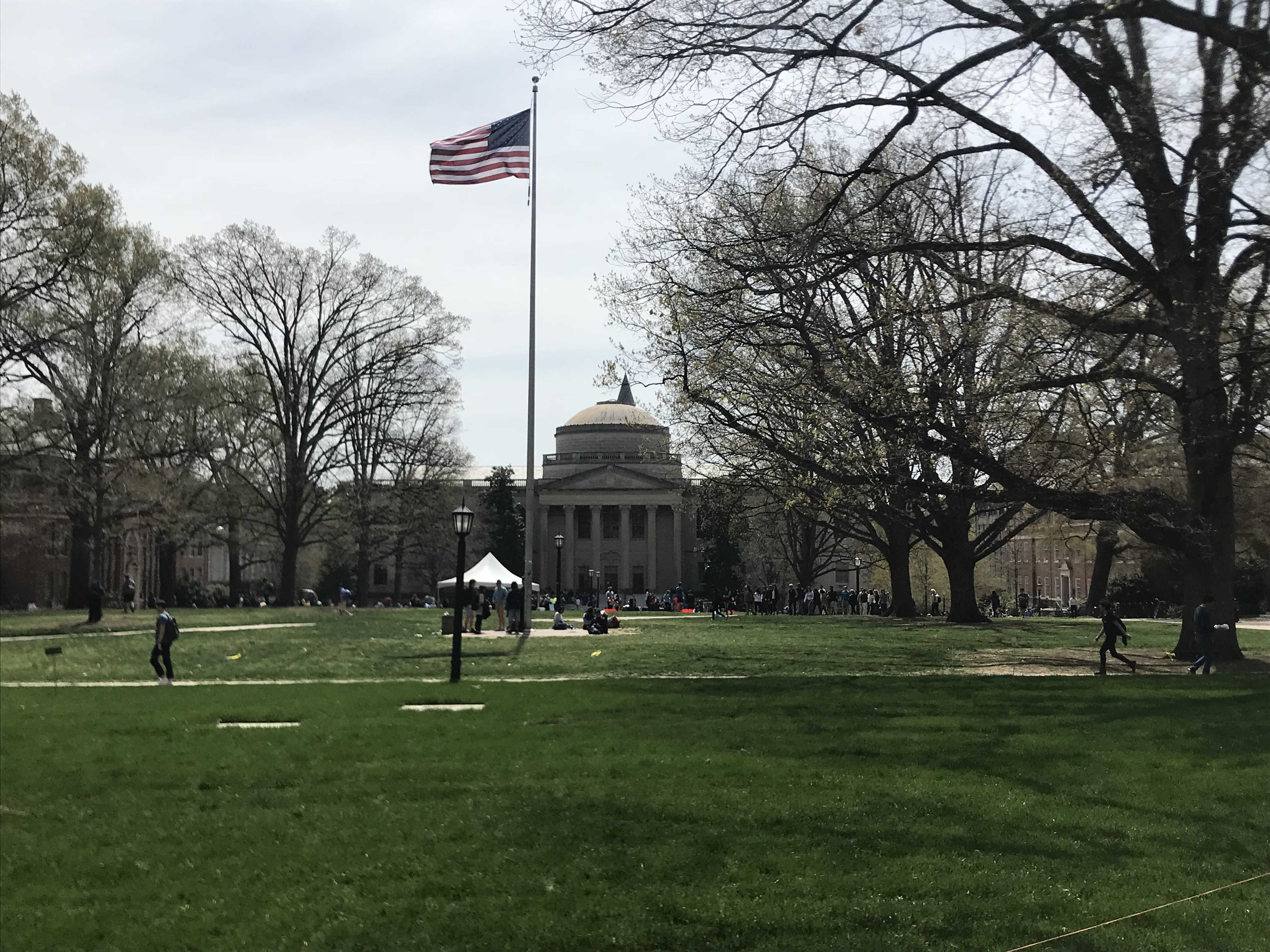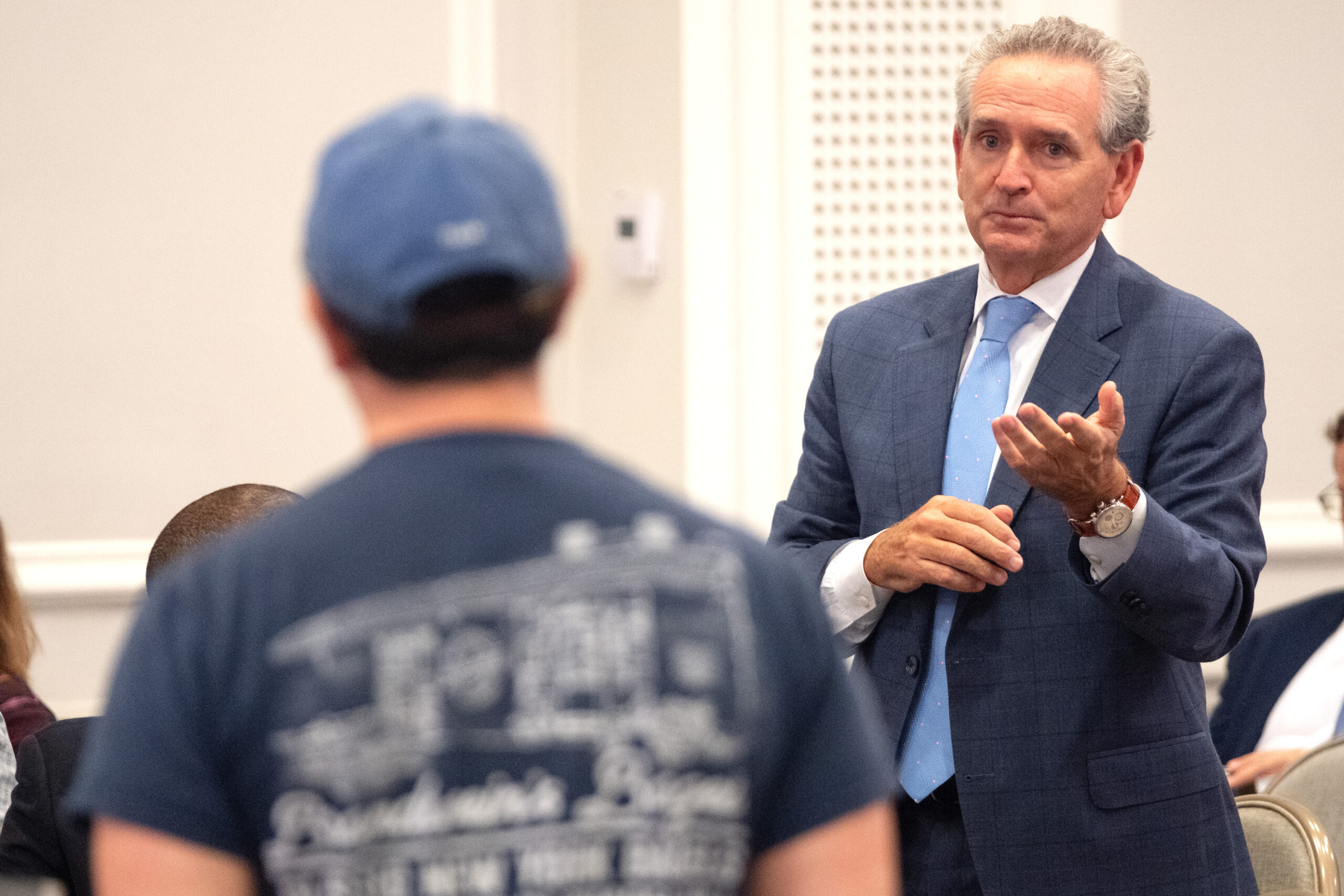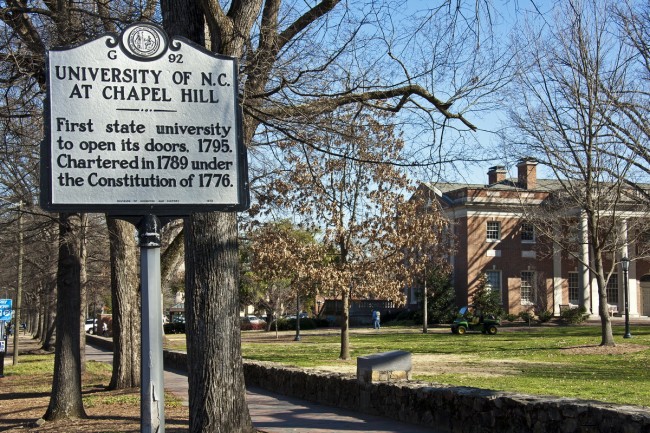Steve Farmer is the admissions director at UNC. He says he’s seen a significant increase in the number of students requesting access to their admissions files.
“We’ve never had a request in the admissions office under FERPA in the time that I’ve been here, at least as I can recall,” says Farmer. “We’ve had about 25 requests this year for students to review the contents of their admissions files.”
Students are making their requests under the Family Education Rights and Privacy Act of 1974, also known as FERPA. It grants students the right to see their educational records and protects those records from disclosure to others.
An anonymous newsletter from Stanford University called the Fountain Hopper was published in January outlining the steps necessary for students to request their files. Since then, college students across the nation have taken advantage of the law.
Farmer says the admissions files UNC students receive will likely contain application materials, transcripts, and notes from university personnel, but not letters of recommendation.
“Generally when students apply for admission, they waive the right to see confidential letters of recommendation and other supporting materials that are submitted by the student’s school on behalf of the student,” explains Farmer. “Because the students waive their FERPA rights and because those recommendations were submitted with the expectation of confidentiality, those generally can’t be accessed by students.”
Farmer says one of the most surprising documents might be the student’s own words.
“For some students, seeing what they submitted when they were 17 or 18 years old might be reassuring or it might be a bit of a shock, depending on how much time has passed,” says Farmer.
Currently, UNC admissions department staffers are working on the logistics of filling those requests.
“What we want to make sure we’re doing is that we’re complying fully with the law and that we’re honoring students’ rights to see their records. The mechanics of it are a little complicated,” says Farmer. “It’s also been a little complicated figuring out what exactly in the file is confidential and what’s not. We’re making good progress and I think we’ll be done soon.”
The university has 45 days to comply under the federal law.
Related Stories
‹

'No Coincidence': UNC Students Share Reaction to New Financial Aid MeasuresJust days after the Supreme Court declared affirmative action unconstitutional, UNC announced it will be providing free tuition for some incoming students.

N Carolina University, Group Argue Over Race in AdmissionsNorth Carolina’s flagship public university is defending its use of race in admitting students and wants a lawsuit filed against it by a group representing past and potential applicants and parents to be dismissed. The University of North Carolina-Chapel Hill filed written arguments in federal court on Friday, as did lawyers for the organization called […]
![]()
UNC Receives Record Number of Applicants 13th Year in a RowFor the thirteenth consecutive year, UNC has received a record number of first-year applicants for fall of 2018. 43,384 students applied, a six percent increase from last year. UNC offered admission to 5,125 in state students and 2,742 out-of-state students, and students were notified of their admission decisions on January 26. Stephen Farmer, vice provost […]
![]()
UNC Sets New Record for First-Year ApplicationsFor 12 years running, UNC has set a new record for first-year applications for the upcoming academic year. More than 40,000 students applied to the university before the January 16 deadline. That’s a nearly 14 percent increase over the number of applicants last year, the second-largest increase in the last 25 years. Vice Provost for […]
![]()
Group Sues UNC, Charging Race Bias In AdmissionsThe group also sued Harvard.
![]()
What is FERPA?Even after her resignation from UNC this past month, the sea of criticism that has come crashing down on Mary Willingham still has little potential to ebb.
![]()
Pet Adoption, Black History Theater, Record Apps For UNCFor the ninth straight year, a record number of students applied to UNC.

Chansky's Notebook: Perplexing ParadigmBubba Cunningham's transition and Steve Newmark's hiring at UNC boggles the already perplexing paradigm of Tar Heel sports.

Chansky's Notebook: Whaaaat!UNC, known for familiarity in its athletic program, has thrown a giant curveball at alumni, students, fans, coaches and athletes.

Chansky's Notebook: Thinking Outside the Shoe BoxArt Chansky ponders the possibility of an even more lucrative partnership between Michael Jordan and UNC men's basketball.
›








Comments on Chapelboro are moderated according to our Community Guidelines